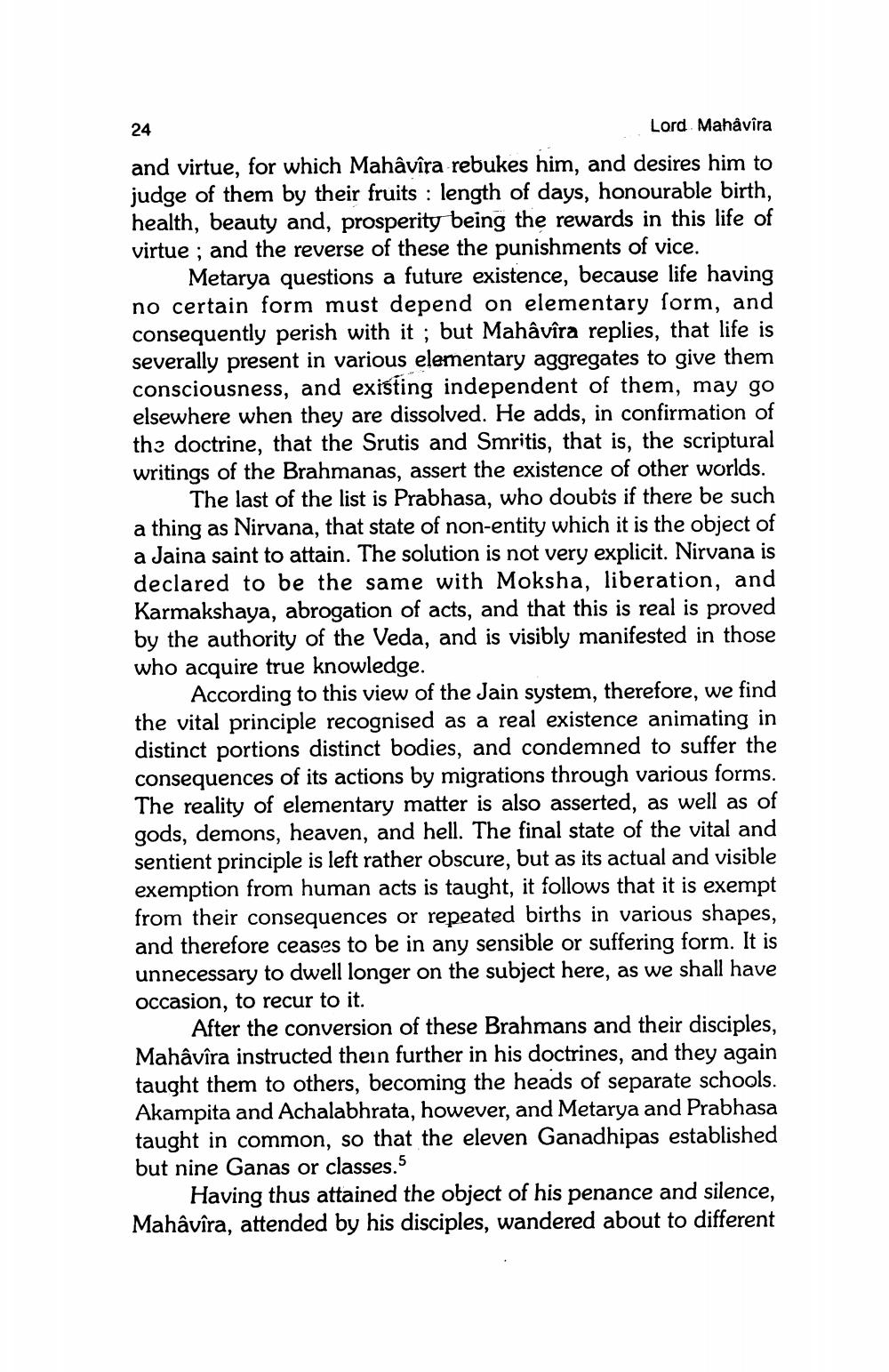________________
24
Lord Mahâvîra
and virtue, for which Mahâvîra rebukes him, and desires him to judge of them by their fruits : length of days, honourable birth, health, beauty and, prosperity being the rewards in this life of virtue ; and the reverse of these the punishments of vice.
Metarya questions a future existence, because life having no certain form must depend on elementary form, and consequently perish with it ; but Mahâvîra replies, that life is severally present in various elementary aggregates to give them consciousness, and existing independent of them, may go elsewhere when they are dissolved. He adds, in confirmation of the doctrine, that the Srutis and Smritis, that is, the scriptural writings of the Brahmanas, assert the existence of other worlds.
The last of the list is Prabhasa, who doubts if there be such a thing as Nirvana, that state of non-entity which it is the object of a Jaina saint to attain. The solution is not very explicit. Nirvana is declared to be the same with Moksha, liberation, and Karmakshaya, abrogation of acts, and that this is real is proved by the authority of the Veda, and is visibly manifested in those who acquire true knowledge.
According to this view of the Jain system, therefore, we find the vital principle recognised as a real existence animating in distinct portions distinct bodies, and condemned to suffer the consequences of its actions by migrations through various forms. The reality of elementary matter is also asserted, as well as of gods, demons, heaven, and hell. The final state of the vital and sentient principle is left rather obscure, but as its actual and visible exemption from human acts is taught, it follows that it is exempt from their consequences or repeated births in various shapes, and therefore ceases to be in any sensible or suffering form. It is unnecessary to dwell longer on the subject here, as we shall have occasion, to recur to it.
After the conversion of these Brahmans and their disciples, Mahâvîra instructed thein further in his doctrines, and they again taught them to others, becoming the heads of separate schools. Akampita and Achalabhrata, however, and Metarya and Prabhasa taught in common, so that the eleven Ganadhipas established but nine Ganas or classes.5
Having thus attained the object of his penance and silence, Mahâvîra, attended by his disciples, wandered about to different




